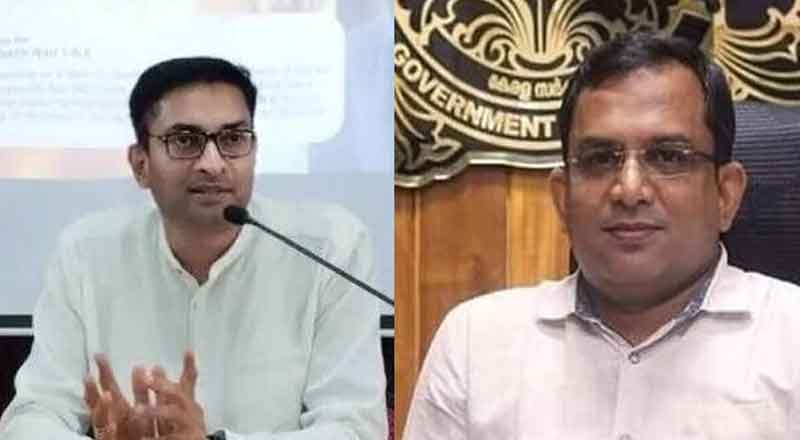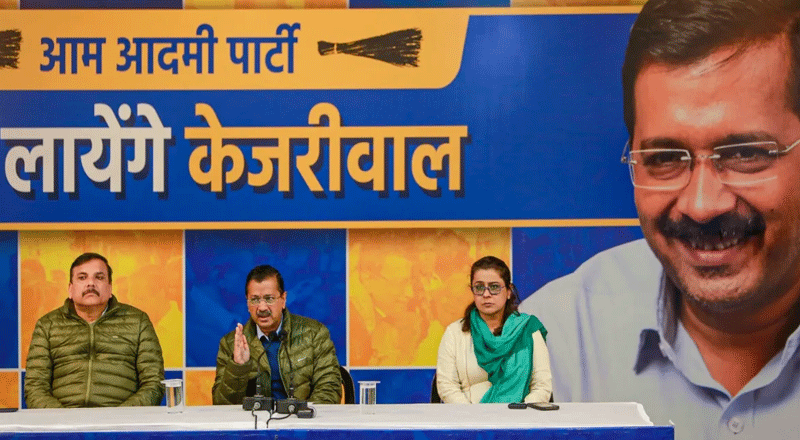In a move that has stirred both public and political circles, the Kerala government has suspended two IAS officers, K. Gopalakrishnan and N. Prashanth, citing disciplinary issues. Known for his unique public interactions, N. Prashanth, often referred to as “Collector Bro,” faces suspension following a highly publicized outburst against a senior officer. Meanwhile, K. Gopalakrishnan, the Industries and Commerce director, is under scrutiny for creating a religion-based WhatsApp group for government officials. These cases raise questions about discipline, accountability, and the complexities of managing bureaucratic roles in an environment interwoven with politics.
The Allegations: social media and Religious Groups at the Forefront
The actions leading to the suspensions of K. Gopalakrishnan and N. Prashanth reveal strikingly different issues but underscore the overarching theme of public conduct and accountability.
Gopalakrishnan, a 2013-batch IAS officer, was suspended after creating a WhatsApp group named “Mallu Hindu Officers” for officials from his state. Despite his defense that his phone was hacked, a forensic examination found that his phone had been reset amid the controversy, failing to substantiate his hacking claims. This group has raised concerns about secularism in the bureaucracy, especially given India’s diversity and the emphasis on non-partisan public service.
In contrast, N. Prashanth, a 2007-batch IAS officer known for his proactive social media engagement, faces suspension for his explosive Facebook criticism against Additional Chief Secretary A. Jayathilak. Prashanth alleged that Jayathilak orchestrated false media reports to discredit him, referring to the senior officer as a “psychopath.” He claims his statements were intended to expose a culture of manipulation within the system rather than criticizing government policies directly. His active social media presence and his popularity as “Collector Bro” have made him a familiar figure among the public, but this latest episode has led to serious disciplinary action.
The Political Angle: Allegations and Counterclaims
Prashanth’s suspension takes on added complexity with allegations from J. Mercykutty Amma, a former Kerala fisheries minister, who claims that Prashanth colluded with opposition leaders in a scheme to accuse her of corruption. According to Amma, Prashanth, who once served as private secretary to Congress leader Ramesh Chennithala, was instrumental in propagating allegations about a deep-sea trawler deal that purportedly implicated her department. Amma’s claims bring a political dimension to the dispute, raising concerns about whether political motivations may have played a role in Prashanth’s allegations against his senior officer.
Prashanth, who has long been outspoken on social media, insists that his actions stem from a desire to expose unfair practices, positioning himself as a whistle-blower. He has cited freedom of expression under the Constitution, stating that he was merely calling out “fabricated reports.” Yet, the government’s response underscores the expectation for restraint and decorum from civil servants, especially those in influential positions.
Public Service and social media: ‘Collector Bro’ and the Changing Face of Bureaucracy
- Prashanth’s story as “Collector Bro” has made him a unique figure among India’s bureaucrats, leveraging social media to connect with the public and share his innovative initiatives. He famously led a campaign to clean a 14-acre pond in Kozhikode, rallying volunteers through a Facebook post and rewarding them with Malabar biryani, which garnered public affection and elevated his status as a people’s officer.
However, his approach to transparency and public communication has also raised eyebrows among political leaders who see his candid online presence as a deviation from traditional bureaucratic norms. His popularity on platforms like Facebook, with over 300,000 followers, has positioned him as a distinctive voice, yet this visibility may have contributed to his current predicament.
The Balance Between Accountability and Freedom of Expression
The suspension of N. Prashanth and K. Gopalakrishnan brings to light the complex challenges facing India’s civil servants as they navigate the dual demands of accountability and freedom of expression. While Prashanth’s claims of “whistleblowing” spotlight the need for integrity within the bureaucratic system, the government’s disciplinary action signals the imperative for public servants to exercise caution and decorum, especially in a highly politicized environment.
In an era where social media blurs personal and professional boundaries, cases like Prashanth’s underscore the evolving role of bureaucrats in India. His suspension raises important questions about how far civil servants can or should go in exposing or criticizing perceived injustices within their ranks. Meanwhile, Gopalakrishnan’s case reiterates the importance of non-partisan behaviour in the civil services.
Ultimately, these cases reflect the pressures within the bureaucratic structure, where transparency, duty, and discipline must coexist. As Kerala and other states move forward, the balance between holding officials accountable and respecting individual rights will be essential in preserving both public trust and a disciplined administrative structure.
(With inputs from agencies)





